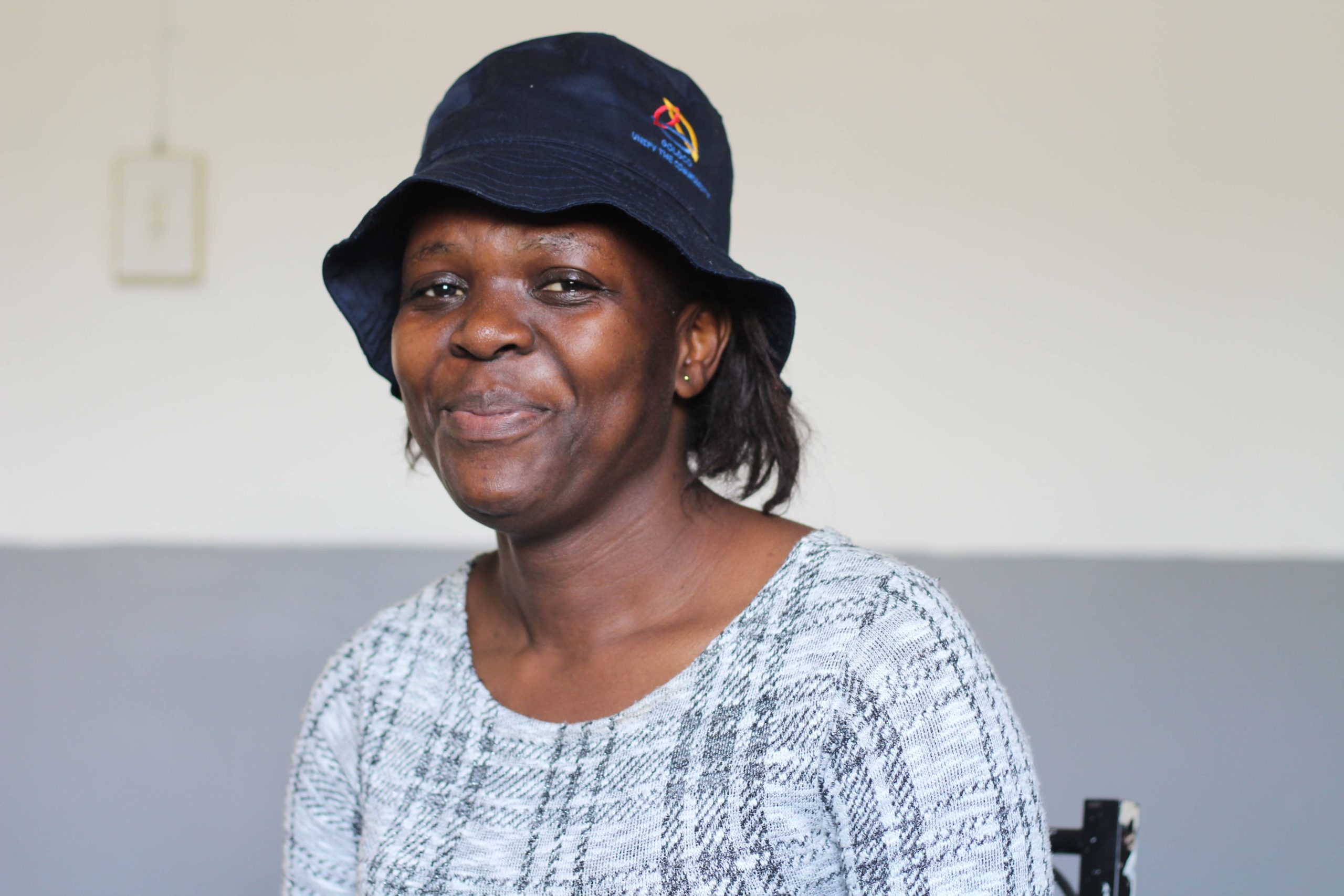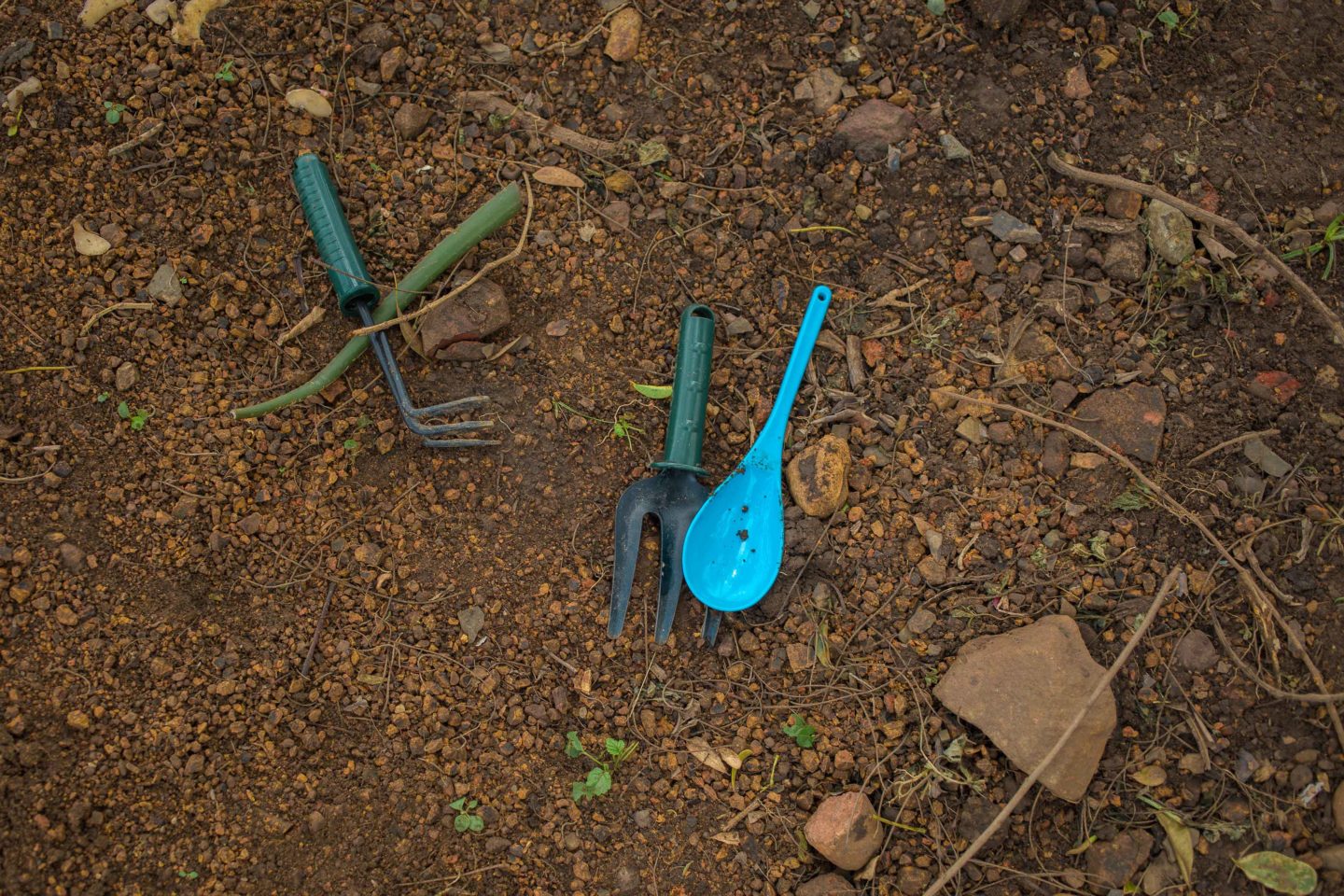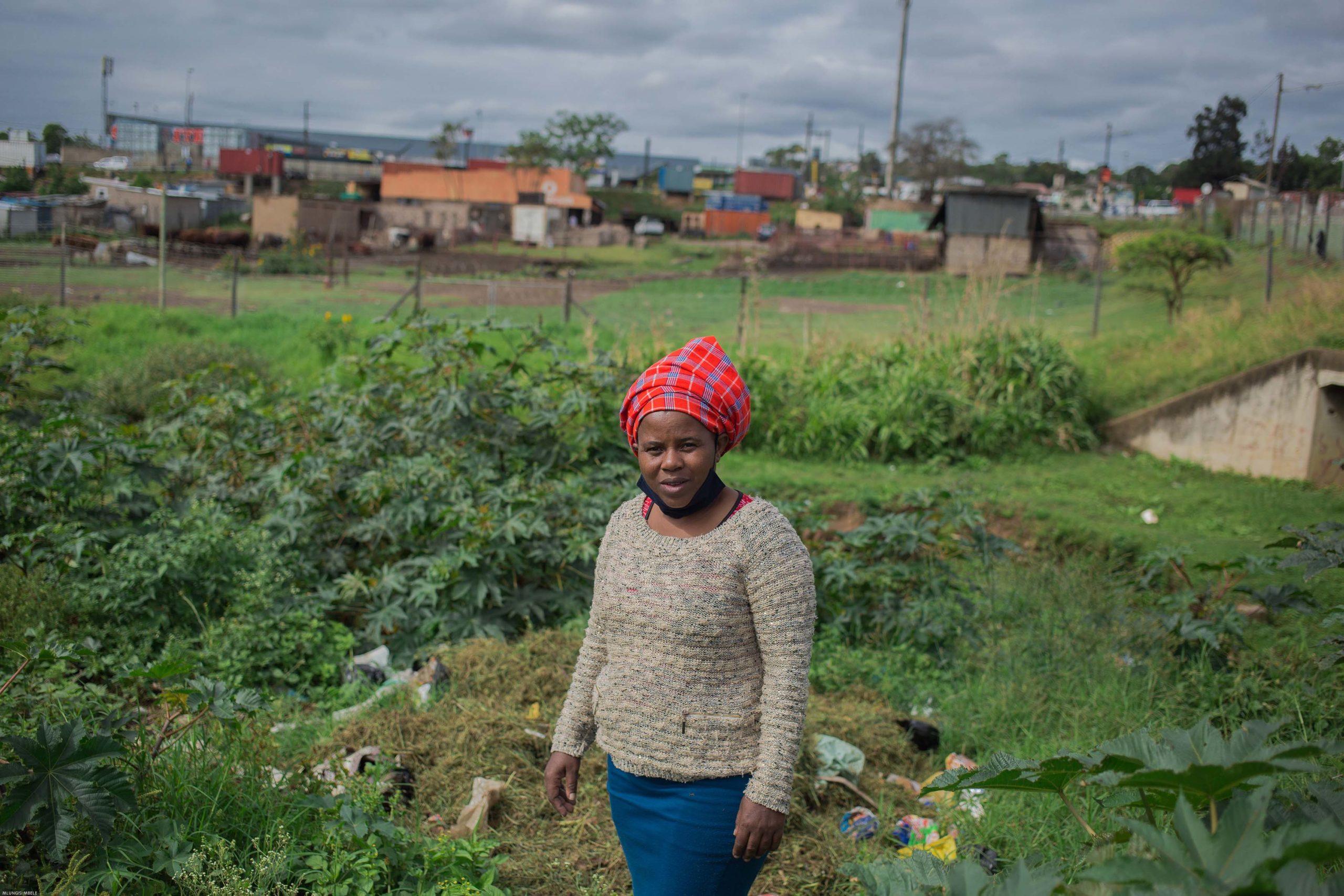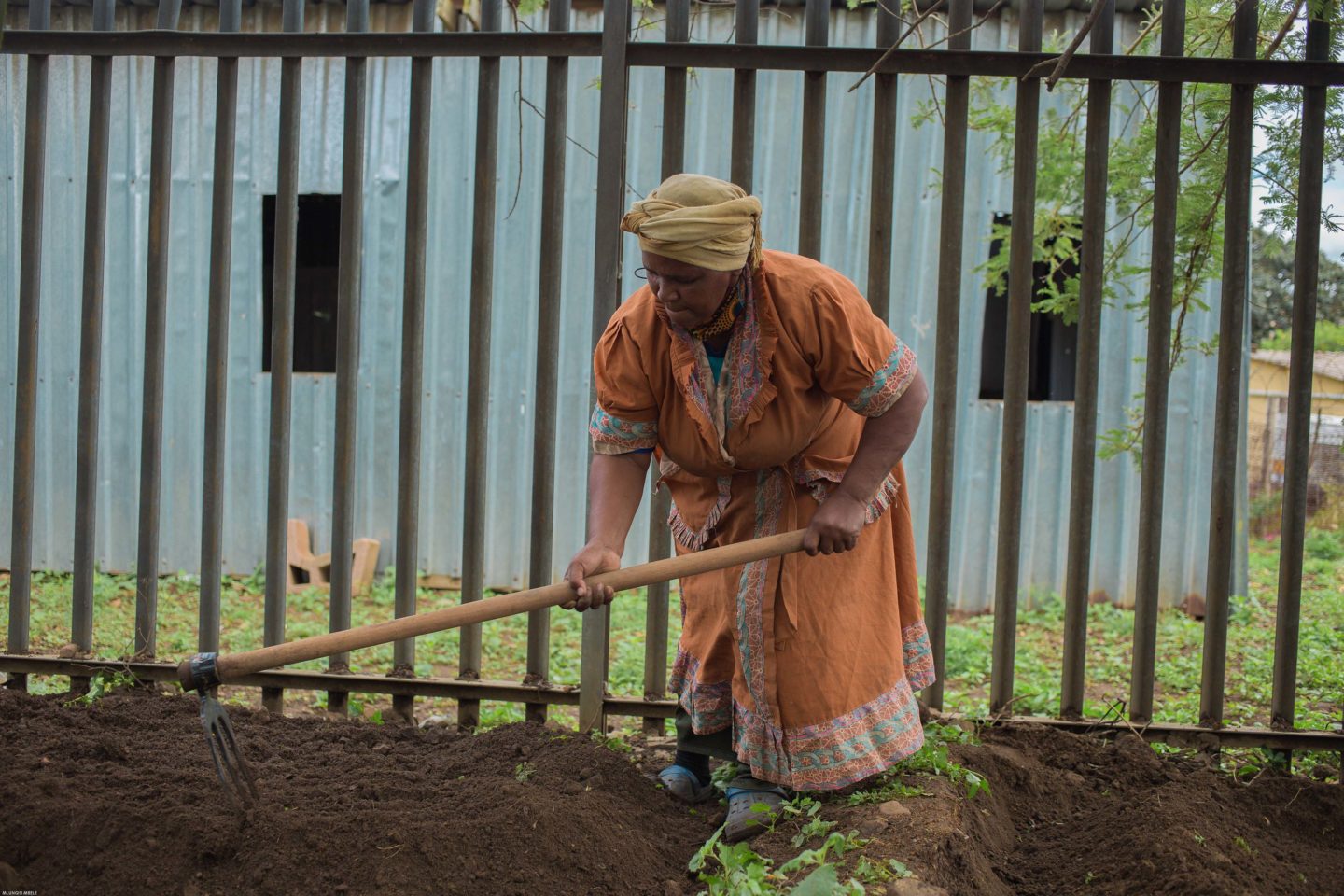Bhambayi is ‘in the middle of nothingness’
Residents of the shack settlement in KwaZulu-Natal feel used and abandoned by the government. Some of those who are voting in the local elections say this is simply because of their responsibility …
Author:
28 October 2021

Women in the Bhambayi settlement in Inanda, Durban, have stepped in to revive an abandoned community centre. They are also creating food gardens to feed vulnerable families, having tired of government promises.
They have established four such gardens on reclaimed land near a river that was full of bushes. For Bhambayi residents, the voting season is often a harsh reminder of the spatial injustice and urban residential segregation in the shack settlement. In every direction, whether neighbouring Phoenix, Inanda Newtown C or Ohlange, there is better infrastructure and development. And the women from the impoverished settlement say safety measures and access to housing remain elusive.
Zinzi Nyuswa, community activist and leader of non-governmental organisation Glory of the Last Days Community Organisation, spearheads initiatives that convert dumping spots and areas used by criminals as escape routes into flourishing community gardens, supporting the women who farm there.

“When we started, we wanted to create safe spaces for women and children who were obviously feeling the pinch of the poverty that looms in this area. This community seems to be mushroomed by bad governance, corruption and historic trauma. These social conditions have gone on for decades, with women at the forefront as victims of the lies and empty promises from politicians. Poor women in this area deserve a chance, even if it is only to leave their one-roomed shacks for a few hours to be productive.”
The political violence that gripped the settlement in the 1990s has left scars. Nyuswa, 39, says the lack of municipal services, developmental tools and safe spaces for residents in the area contribute to their harsh daily life.
“Lockdown didn’t do the poor any favours but left many of us without jobs, and the R350 [monthly Covid-19 social relief of distress grant] was also taken away and we were once again subjected to extreme poverty. Then the looting and the violence started, and poor people were once again at the losing end. Hundreds of lives were lost in the name of food and appliances,” she says.
Years of neglect
Bhambayi is governed by the ANC. When you walk along the narrow paths between the shacks, you can see the neglect. The settlement does not have a clinic, police station or decent recreational facilities. To have access to these, residents must travel to neighbouring townships. Because of how near some of the neighbouring areas are, it’s only when you look closely at the settlement that you realise it has none of these facilities.
The history of political instability coupled with bad governance has hindered development in the area. The settlement has experienced waves of deadly violence, from riots in 1949 and 1985 to inter-party violence in the 1990s. Most recently, Bhambayi residents were among the 36 people who died in the racially motivated killings in Phoenix during the July unrest.
Although distinct dynamics fuelled these outbreaks of violence, they all revolved around similar issues: a scarcity of resources, poverty, dispossession and political tension. Bhambayi epitomises state abandonment at its harshest, with its rows of shack homes and mud-narrowed walkways where children play.

Instead of addressing residents’ concerns, politicians used the July riots for politicking. The DA put up posters in Phoenix, where some of the seeds of hate were planted, calling the vigilantes “heroes”. The Inkatha Freedom Party, whose members were among the central players in the political violence that scarred and divided Bhambayi, came out with a message that claimed “real heroes unite communities” – without any sense of irony.
Nyuswa says the social factors contributing to the rampant crime and poverty in Bhambayi have not been prioritised. “We write a lot of letters, pleading [with] organisations, companies and government departments. A lot of them never respond. There are a few small organisations that will often provide us with food parcels and hot meals, but we want to move away from that narrative. We are not about asking for food parcels, and there are many ways to support community initiatives in addition to food donations. We cannot be a community that lines up for meals all the time,” she says.
Electioneering tools
The glaring realities, particularly for women and children, who lack access to health and safety services, are evident in every corner of the cramped settlement. The women who are active in the food gardens say they don’t feel safe. “We never know if we are going to make it to the garden spots or back home alive with the level of violent crimes in the street corners and hollow passages in between our homes,” says Philisiwe Mnyanda, 33.
Mnyanda works at the food garden from 5am to 8.30am every day. “We don’t have our own identity. We are just used as tools to win votes. [We are] moved from ward to ward, without consultations and without any actual development. They wind us up and point us wherever they feel, and the next thing we have a new councillor and it’s the same vicious cycle again.”
Nontsikelelo Noxhaka, 49, echoes Mnyanda’s sentiments. “Voting is like an ongoing nightmare, a ritual that we do to get it over [and done] with. We have to vote because we’re in this country and that’s our responsibility, but we see no value in voting. Our vote has never meant anything for the past six councillors we’ve had.”

Noxhaka says the recent violence – in which three women were killed and several injured during a drive-by shooting at a school in Inanda Newtown C, next door to Bhambayi, during an ANC candidate election meeting – is revealing. “The politics in this area are more about personal political gain, disguised as service to the community. From the onset, we are aware of their intended goals, and so we never get surprised when they never fulfil any of their promises. But how long is enough?”
The women who are working to create safer spaces and produce food say they want to destroy the burden of poverty by empowering one another through group activities. They add that the issues of social safety, health, economic development, water and sanitation are used only as electioneering tools.
“The ruling party in this area has been used to legitimise grand corruption. It is okay now for them to promise poor people multimillion-rand projects that the community really needs and then disappear into thin air. It is normal for them to have bodyguards, why do they feel unsafe? If you are doing good work for the community, the same community that elected you, why are [you] now suddenly unsafe?”
Ward swaps
Residents say the demarcation processes that have taken place over the years are “confusing and disgusting”, and merely voting ploys. They have been waiting since 2008 for housing and development projects such as the Pat Marshal Housing project, whose aim is to build “approximately” 482 residential units, and a multipurpose centre to materialise. The building of a creche and a public park was also part of the Pat Marshal project, while the multipurpose centre was going to have a clinic, police station, hall and a library.
“We have been moved to different wards since 2016, about three times now. We want nothing more to do with these demarcations because they do not serve us any use either. We are taken from one ward to the other where we share no common issues with that community, and the councillor from that ward is foreign to our problems. So in the end, we are still in the middle of nothingness, homelessness and bellies full of empty promises. We are just being used,” says S’khethabahle Slempa, 40.

“We are tired of waiting. We vote because it is our duty, just to have a footprint in the name of democracy. Our community continues to exist in isolation. The call to prioritise safety, dignified housing and improved food sovereignty has been ignored for decades.
“We have seen that politics does nothing for us. Instead it kills us, physically and psychologically. We cannot depend on the government even for basic services and we have made peace with that. It’s not hopelessness, but it is the reality we have become accustomed to. That is why we have begun promoting the concept of developing practical solutions to our current problems such as food gardens, encouraging one home, one garden initiatives around the settlement.”
